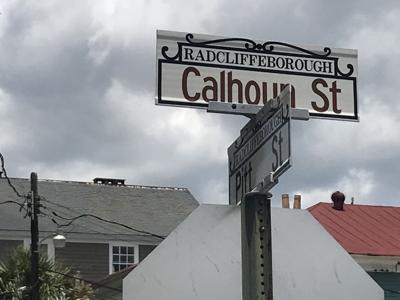The S.C. Supreme Court’s long-awaited opinion on a lawsuit challenging the state’s extraordinary protection of monuments and building and street names dedicated to the Confederacy changed the number of votes legally required to revoke that protection.
What it did not change is the fact that the Legislature retains exclusive control over those monuments and names, which can be removed or changed only with the Legislature’s permission.
It also did not change the fact that the Legislature needs to relinquish some of that authority.
We don’t think it’s wise to rip down monuments. We’re also not crazy about the wholesale renaming of buildings and roads — although we should recall that names are so ephemeral that our legislators think nothing of changing several of them every year to honor politicians and other people, often people still living, who are special to our legislators.
But the question isn’t the wisdom of changing who we choose to honor and celebrate. The question is who should be able to decide: the cities and counties that own the statues and buildings and roads and bridges and other infrastructure, or the Legislature.
The part of the Heritage Act that the court ruled unconstitutional required a two-thirds vote by the House and the Senate to change any monuments or names celebrating a long list of wars and historic figures. That requirement was offensive because it allowed a third of either the House or the Senate to overrule the majority of legislators. It was unconstitutional — a point that even Attorney General Alan Wilson conceded more than a year ago — because through it legislators who were in office in 2000 had set conditions on what could be done by legislators we elected in 2020.
The court also said that nothing in the state constitution prevents the Legislature from usurping city and county power over monuments they own and the names of federal, state and even local roads and bridges in their communities. But the fact that something isn’t unconstitutional or illegal doesn’t mean it’s right or proper. People do things all the time that are wrong but legal.
The court devoted much of its opinion to a notably accurate retelling of how the Heritage Act came to be: how lawmakers who revered the Confederate flag agreed to remove it from its false position of sovereignty atop the Statehouse in return for “the assurance that doing so would not ‘open the floodgates,’ and if the renaming and removal of other historic items could be prevented.”
Mr. Wilson’s brief more accurately described the goal of many legislators as seeking “in essence, to ‘freeze’ monuments [or names, etc.] as of the date of the Act’s passage.” But the court accurately repeats a commonly used metaphor at the time the law was passed, so let’s think about that:
The purpose of floodgates is not, in fact, to freeze the status quo. It’s to provide careful control; floodgates are opened periodically to let out some water. Never opening them can cause dams to breach and levees to break, raining biblical destruction down on the community.
With obscure exceptions in 2005 and 2013 and the notable exception of removing the Confederate flag from the Statehouse lawn in 2015 after an evil man-child massacred a state senator and eight of his fellow parishioners in his Charleston church, the Legislature has refused to consider using its floodgates.
It’s one thing for the Legislature to decide the fate of state-owned property, even if we don’t agree with its decision. But it’s no more appropriate for the Legislature to tie the hands of elected city and county council members on monuments and names than to tell them how to zone property or how many police officers or firefighters to hire.
Why should legislators from Walhalla and York and Greenville get to tell the Charleston City Council what names it can and can’t change on city streets? Why should people in Charleston and Myrtle Beach and Florence get to tell people in Columbia which of their monuments they can and can’t relocate or alter?
They shouldn't, and the Legislature needs to repeal the law that lets them do just that.














